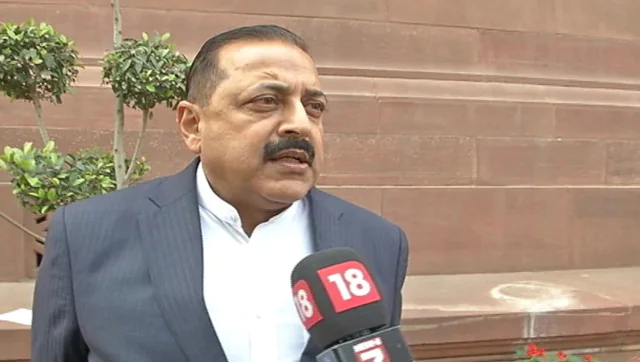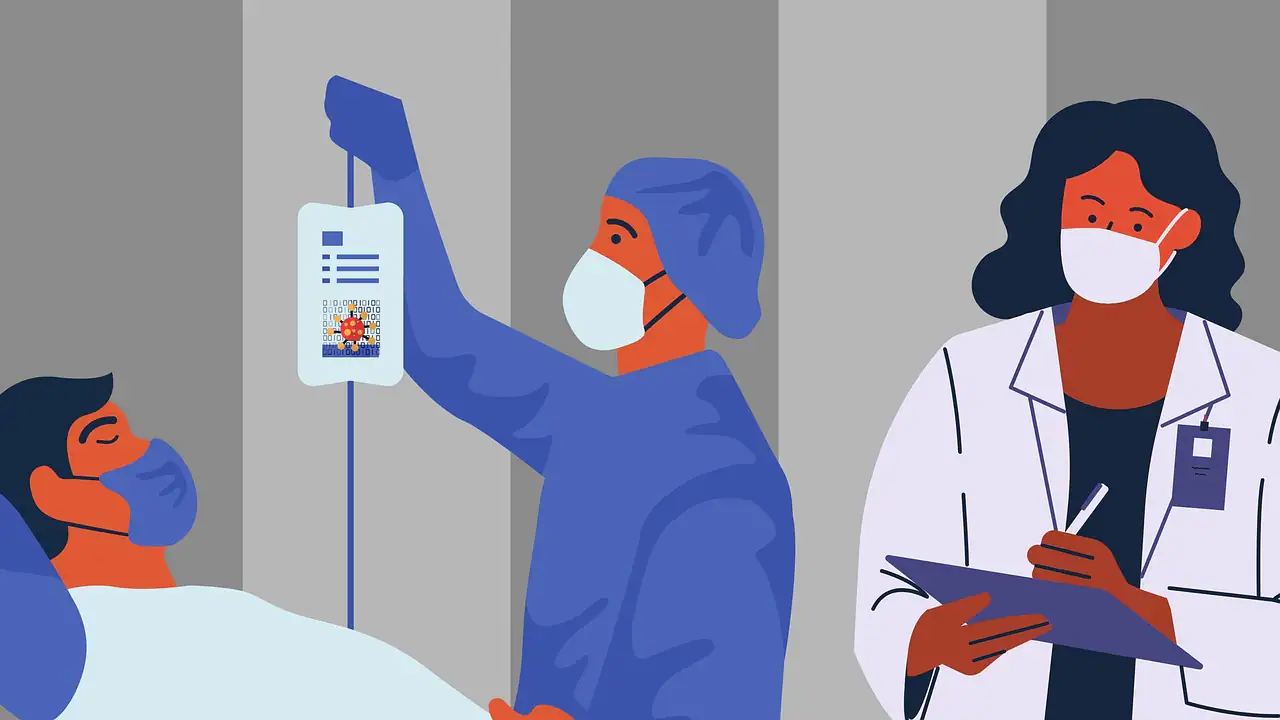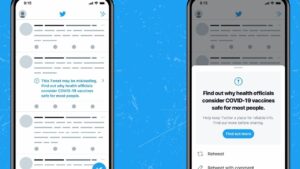The guidelines are aimed at providing a well-defined framework and guiding principle to facilitate and enable sharing and exchange of biological knowledge, information and data

File image of Union minister Jitendra Singh. News18
New Delhi: Science and Technology Minister Jitendra Singh on Friday released a set of guidelines to provide a well-defined framework and guiding principle to facilitate sharing of biological information and data generated by research groups in the country.
“The Biotech-PRIDE (Promotion of Research and Innovation through Data Exchange) Guidelines will facilitate this and enable exchange of information to promote research and innovation in different research groups across the country, a statement said.
Singh also launched the website of the Indian Biological Data Centre (IBDC).
The guidelines are aimed at providing a well-defined framework and guiding principle to facilitate and enable sharing and exchange of biological knowledge, information and data and is specifically applicable to high-throughput, high-volume data generated by research groups across the country, the statement said.
These guidelines do not deal with the generation of biological data but are a mechanism to share and exchange information and knowledge generated according to existing laws, rules, regulations and norms of the country, it said.
They will ensure data sharing benefits, maximise use, avoid duplication, maximise integration, ownership information, better decision-making and equity of access, the statement said.
These guidelines are a mechanism for sharing data publicly and within a reasonable period of time after data generation. Thus, the utility of the data will be maximum, it said.
Resultantly, the accrual of the benefit of public investment for data generation will not be compromised, the statement said.
Singh said initially these guidelines will be implemented through the IBDC at the Regional Centre for Biotechnology supported by the Department of Biotechnology (DBT).
Other existing datasets and data centres will be bridged to this IBDC which will be called bio-grid, he said.
This bio-grid will be a national repository for biological knowledge, information and data and will be responsible for enabling its exchange, developing measures for safety, standards and quality for datasets and establishing detailed modalities for accessing data, the minister added.
The guidelines will be helpful to harmonise, synergise and encourage data sharing for research and analysis in the country and to promote scientific work and foster progress by building on previous work, Singh said.
These guidelines will also be advantageous in avoiding duplication and wasteful expenditure of resources on research, he said.
Singh said with a population of over 135 crore and the heterogeneous character of the country, India needs its own exclusive database for Indian research and solutions.
There is no dearth of talent in the country and the indigenous database will have a huge enabling mechanism for the exchange and adoption of data by young scientists and researchers for the benefit of Indian citizens, he said.
Describing the release of Biotech-PRIDE as the first of its kind by the DBT, Singh said India’s rank is four among the top 20 countries contributing biological databases.
The government invests a large amount of public funds to generate data in various sectors, including in biosciences for knowledge generation, to gain deep insights into intricate biological mechanisms and other processes and for translation, he added.
Singh said advances in DNA sequencing and other technologies along with a steep drop in DNA sequencing cost has allowed government agencies to fund research towards generation of large volumes of biological data in various sectors of biosciences.
He said sharing a wide range of large-scale data advances the understanding of the molecular and biological processes that will contribute to human health on agriculture, animal husbandry, fundamental research and thus will extend to societal benefits.










